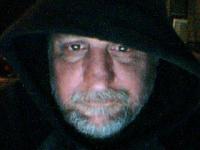


I grew up with The Lords Prayer. I’ll attach a very long caveat to that statement. I was borne, and raised in a Jehovahs Witness household. It was kosher to read The Lords Prayer in passing, as part of the Bible in its entirety. However, to pray The Lords Prayer, or to contemplate the depth of its message, was expressly forbidden … idolatry, and all that.
What happens when you tell a boy not to do something? What happens when you harp into the ground at some kid that chewing tobacco and smoking a pipe is evil and bad? He’s going to hide his tobacco pouch in his gym shoes, and stash his pipe outside in some old tree stump, sick and woozy as both practices make him. So it is with The Lords Prayer.
I had difficulty grasping the meaning, and the message behind The Lords Prayer. You know, my father went around the country selling pumping jacks to oil companies. My ancestors fought horrific wars to get rid of kingdoms and lords, and such other nuisances. As far as evil goes, there’s that chewing tobacco and pipe smoking dynamic creeping right back up to the surface once again. Furthermore, if you loan someone $10 because they forgot their lunch, you’d be buying their lunch every day if you didn’t expect them to pay you back … you‘d go broke.
I had difficulty grasping the meaning, and the message behind The Lords Prayer. I had difficulty grasping the meaning, and the message behind The Lords Prayer, till I examined The Lords Prayer critically, in its historical context. The concepts, the message behind The Lords Prayer were not originally expressed in English by a 20th Century Hillbilly, with a lexicon of around half a million words from which to draw. The concepts and message behind The Lords Prayer were originally expressed by a 1st Century Judean Heir Apparent being financed by remnants of the Persian Empire, and more than likely several other political entities, including Ethiopia.
This 1st Century Judean Prince expressed himself in Aramaic, a member of the Semitic Language Family. The language as it was spoken was almost entirely influenced by Ancient Hebrew, which had been a static language for about 200 to 300 years before The Lords Prayer was first uttered. Mutations of pronunciation, variances in emphasis, and slight differences in the funny way Hebrew and Aramaic shove words together … called ‘constructs’ … classify Ancient Hebrew and Aramaic as two different languages. Ancient Hebrew had a lexicon of about 10,000 words, Aramaic may have had a few thousand more, if it was lucky.
Jesus, Jesus Ben-David, the 1st Century Prince to whom I’ve been referring, was attempting to express concepts and ideas of which the language he was using simply could not facilitate. He wasn’t speaking English, He wasn’t speaking Greek, and He wasn’t speaking Latin … He was speaking Aramaic, a language of goat herding philosophers who didn’t normally have to say a lot of things to a lot of people. Jesus, in His infinite wisdom, resorted to the use of parables, and idioms in His teachings.
The Lords Prayer is idiomatic in its entirety. Unfortunately, the ancient translators of The Lords Prayer simply exchanged Aramaic words for English words, then rearranged the words so they’d sound pretty in a sentence. The idiomatic context of the verbiage was ignored entirely. Luckily, we have a modern language which is directly descended from ancient Aramaic, which we find it in modern Syriac. Serendipitously, Syriac has retained the tradition of idiomatic expression from its roots in antiquity, to the extent that many of these idiomatic expressions used today are very ancient.
So, following is the end result of a life time of exploration, and contemplation. I would like to point out here that I am fluent in Hebrew, but speak about three words of Aramaic. I’ve had to rely on others interpretations of the idioms being scrutinized, as well as my own common sense and humble knowledge of the subject in general.
A Modern Interpretation of The Lords Prayer
Our Father Who Art in Heaven,
Cosmic Entity, Providential, of Whom we are exceedingly fond, and to Whom we are kindred,
Hallowed be Thy Name,
Limited as we are in our capacity to comprehend the utter vastness and completeness of Your Essence,
Thy Kingdom come, Thy Will be done, on Earth as it is in Heaven,
When we come to live according to our true nature and purpose we will be in harmony with you, the Cosmos,
Give us this day our daily bread,
Let us focus on the present,
And forgive us our debts as we forgive our debtors,
Let us not be attached to events of the past,
And lead us not into temptation,
Nor let us dwell on superfluous expectations of the future,
But deliver us from evil,
But let us be in harmony with our true natures,
For Thine is the Power, and the Glory of the Kingdom of Heaven, both Now, and Forever, and unto the Ages of Ages,
For you, Cosmic Entity, are all of Everything in all of Time and in all of Space.
Amen!
There it is!